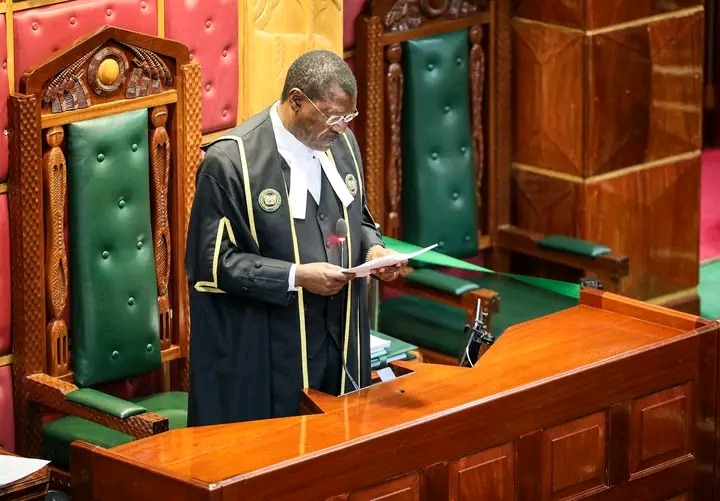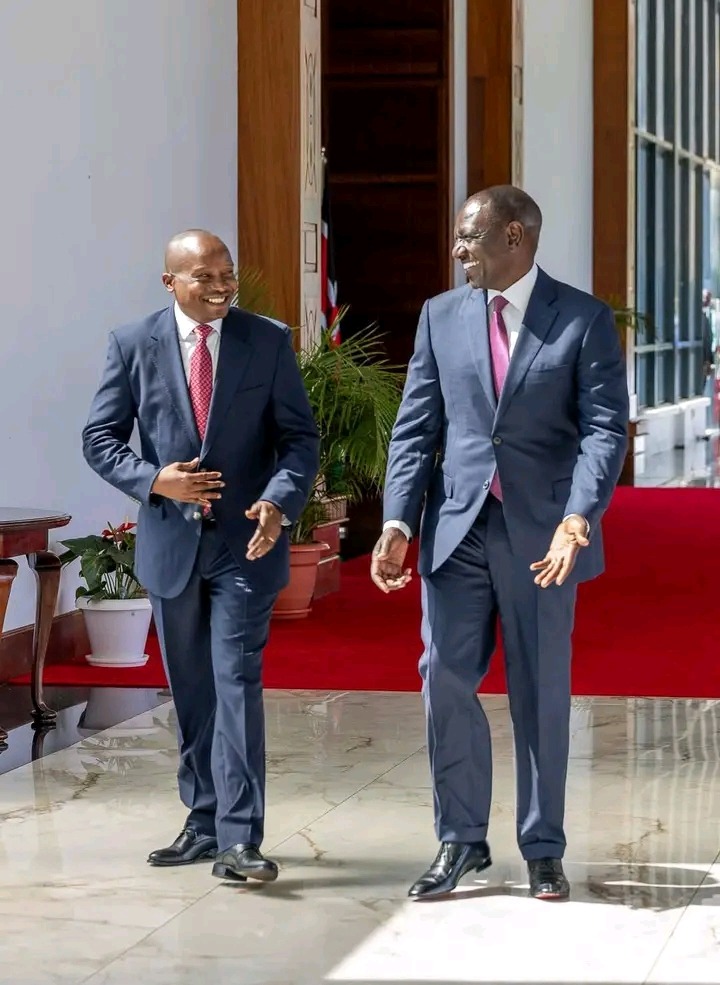
𝐓𝐮𝐞𝐬𝐝𝐚𝐲, 𝐎𝐜𝐭𝐨𝐛𝐞𝐫 𝟏, 𝟐𝟎𝟐𝟒,
𝐏𝐚𝐫𝐥𝐢𝐚𝐦𝐞𝐧𝐭 𝐁𝐮𝐢𝐥𝐝𝐢𝐧𝐠𝐬, 𝐍𝐚𝐢𝐫𝐨𝐛𝐢.
National Assembly Speaker, Rt. Hon. Dr. Moses Wetang’ula, has approved a special motion to impeach Deputy President Rigathi Gachagua.
Speaker Wetang’ula while approving the motion on Tuesday afternoon declared that all 11 grounds presented meet the by constitutional threshold for such an action.
The motion, sponsored by Hon. Mwengi Mutuse (Kibwezi West), seeks the House’s resolution for the removal of Deputy President Gachagua from office.
Speaker Wetang’ula, in his communication to the House, explained that the grounds for impeachment fall under Article 150(1)(b) of the Constitution, which addresses the removal of a Deputy President due to gross violation of the Constitution, serious crimes under national or international law, or gross misconduct.
“The notice of the special motion seeks the removal of the Deputy President on 11 specified grounds, each in line with Article 150(1)(b),” said Speaker Wetang’ula.
Hon. Mutuse submitted the motion on Thursday, 26th September 2024, and it was received the following day.
Speaker Wetang’ula confirmed that the motion satisfies the constitutional and procedural requirements set out in Articles 145(1) and 150(1)(b) of the Constitution, as well as Standing Order 64(1).
“I have also verified that more than 117 members have signed in support of this special motion, exceeding the minimum threshold,” he announced.
According to the Speaker, the motion presents detailed grounds for the Deputy President’s removal, supported by annexes and a sworn affidavit submitted by Hon. Mutuse.
The evidence, he explained, is necessary to substantiate the claims and grounds for impeachment.
In his remarks, Speaker Wetang’ula described the impeachment process as a significant constitutional moment.
“This motion presents an unprecedented test of the provisions for removing a Deputy President under the 2010 Constitution,” he stated.
He also drew parallels to a similar moment in the 6th Parliament when, in April 1989, Hon. David Mwenje successfully moved a vote of no confidence against then-Vice President Josphat Karanja.
However, under the current Constitution, the process for removing a Deputy President has shifted to Parliament, unlike the previous regime where the President had the power to dismiss the Vice President.
Speaker Wetang’ula outlined the constitutional process for impeachment, noting that Article 150(1)(b) allows for the removal of a Deputy President under similar conditions as those for impeaching the President.
He cited Standing Order 64(2), which mandates the Speaker to notify the House of a special motion’s receipt and its admissibility within three days.
“The special motion must satisfy all the legal and procedural requirements regarding form, threshold, and grounds, as provided under Articles 145(1) and 150(1)(b) of the Constitution,” Speaker Wetang’ula explained.
“I have examined the notice of the special motion and find that it meets the necessary criteria.”
The Speaker’s ruling sets the stage for what could become a pivotal moment in Kenya’s political landscape, with the National Assembly set to debate and vote on the motion to impeach the Deputy President.



 Here’s a breakdown of the process and potential: Steps in…
Here’s a breakdown of the process and potential: Steps in…





















